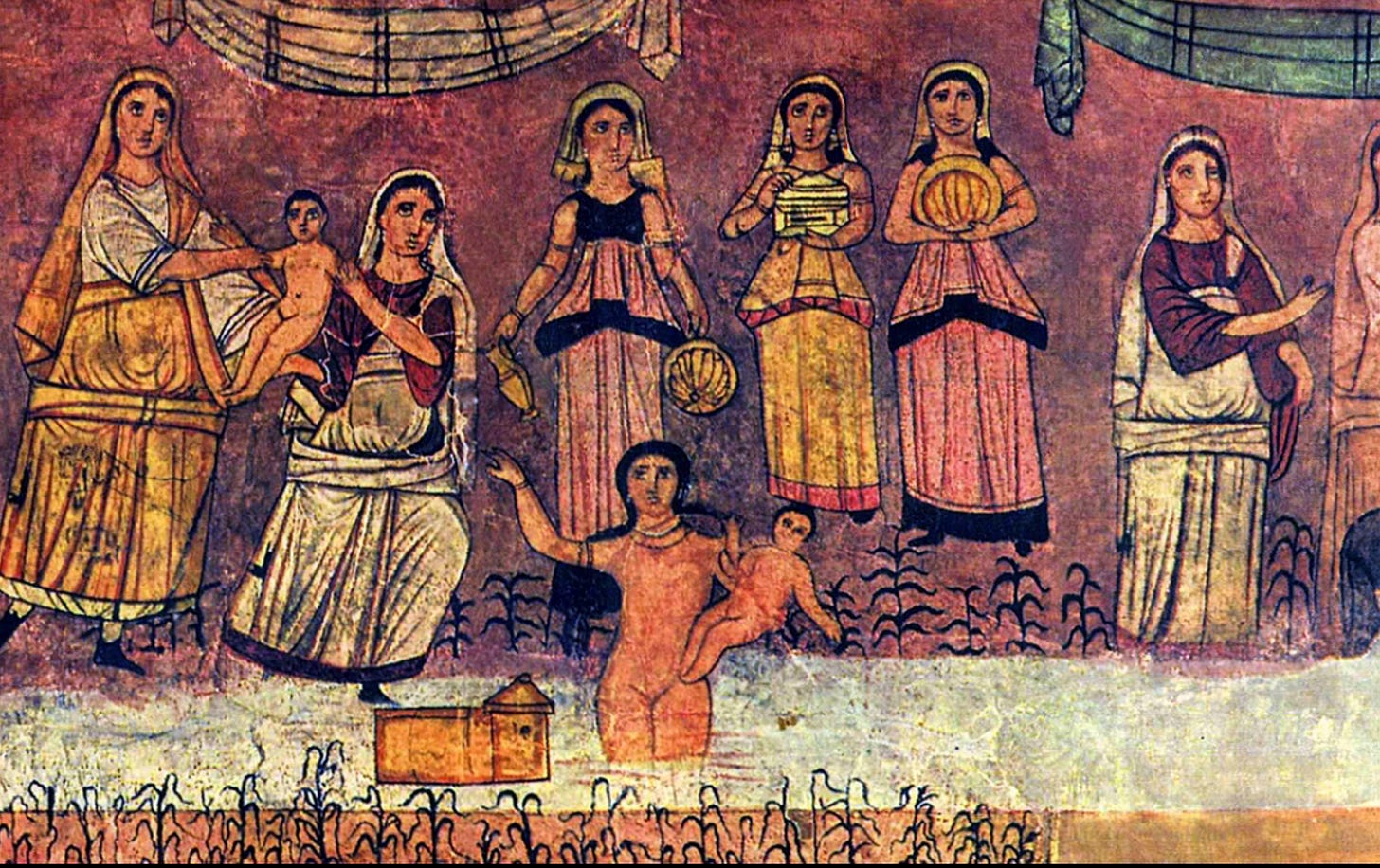The Women of Exodus: One of the Earliest Examples of Nonviolent Resistance
Part One of a Multi-Part Series on Scripture and the Struggle for Democracy
At a time when democracy is under threat and justice feels fragile, our faith reminds us: we were made for this moment. Scripture is more than comfort—it’s a handbook for resistance. It equips us for action. This is part one of a multi-part series exploring how faith, rooted in scripture, prepares us to meet this moment.
A Defining Moment in Birmingham
Bull Connor lost America when he turned fire hoses on children marching for civil rights in Birmingham in 1963. The image of water cannons slamming into small bodies shocked the conscience of the nation—and galvanized a movement.
This wasn’t spontaneous.
It was a strategic “dilemma action.”
A dilemma action forces an opponent into a no-win situation: attack and lose moral legitimacy, or back down and lose control.
This was the Children’s Crusade, organized by Rev. James Bevel after adult protestors were increasingly targeted by violence. Over 1,000 school-aged children marched downtown to speak to the mayor about segregation. Bull Connor responded with police dogs, fire hoses, and mass arrests. The world watched, horrified.
It worked. The Children's Crusade compelled President Kennedy to publicly support federal civil rights legislation, paving the way for the Civil Rights Act of 1964.
The Bible’s First Dilemma Action
As we face Trump’s Christian Nationalist agenda, it’s crucial to remember these lessons.
The Bible is filled with dilemma actions and other forms of nonviolent resistance.
In Exodus 1, Shiphrah and Puah—the Hebrew midwives—resist Pharaoh’s genocidal decree with remarkable wit and moral clarity. Ordered to kill newborn Hebrew boys, they defy him, saying:
“The Hebrew women are not like the Egyptian women; they are vigorous and give birth before the midwives arrive.” (Ex. 1:19)
It’s brilliant. It’s humorous. And it’s dangerous.
Their response traps Pharaoh:
If he challenges them, he exposes his impotence.
If he accepts their excuse, he affirms the strength of the people he’s trying to crush.
Shiphrah and Puah quietly but powerfully defy tyranny, modeling what we now recognize as nonviolent resistance.
What Makes a Dilemma Action Work?
Democracy expert Scott Nakagawa outlines what makes dilemma actions effective:
They expose injustice by highlighting absurdity.
They force the oppressor into tough choices: crack down and appear cruel, or back down and seem weak.
They maximize visibility and often build momentum through repetition and escalation.
“So God was kind to the midwives, and the people increased and became even more numerous.” (Ex. 1:20)
The midwives’ resistance buys the Israelites time to organize. But Pharaoh escalates again (Ex. 1:22), weaponizing his people to kill Israelite babies.

And yet, this too backfires: his own daughter defies him, rescuing and raising Moses—the leader who would liberate the Israelites.
The midwives’ defiance sets off a chain reaction of holy resistance.
The Global Struggle for Democracy
Around the world, people are resisting a wave of authoritarianism. An axis of autocrats is reversing democratic gains once thought permanent. For the first time in over 20 years, there are fewer democracies than autocracies.
I never thought the U.S. would be on the autocracy side of the latest V-Dem report. But I should have. The Jim Crow South was an autocracy—a one-party state that denied Black citizens the vote through law and terror.
That may be hard to hear. But it reminds us:
We’ve been here before.
Our ancestors fought their way forward with courage and strategy.
And we are not alone.
There are faith-based democracy defenders around the world who’ve been in this fight longer than we have. We must learn from them.
One great place to start is Scott Nakagawa’s excellent piece on dilemma actions:
📖 Read hereRead the V-Dem Report:
✨ What’s Next
I recently founded Faith in Democracy to connect and equip a global network of faith-based democracy defenders. I’ll be sharing more about this movement in upcoming posts—stories, strategies, and spiritual practices that ground our struggle.
📬 Subscribe here to follow this journey and get involved.





Love this, Jen.